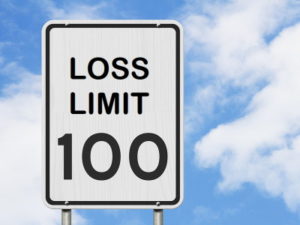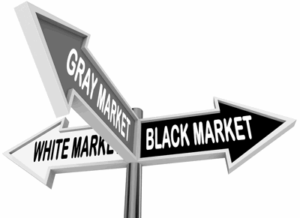Most People Don’t Want Gambling Limits, Only 10% Definitely Wouldn’t Use Illegal Sites
 A survey carried out by YouGov has found that the majority of voters don’t want politicians to be given the power to limit how much people can bet. As the United Kingdom Gambling Commission continues its consultation on affordability in gambling, the poll by YouGov will give the governing body something to think about. There are calls for punters to be limited to £100 losses per month, which people seem to be generally opposed to.
A survey carried out by YouGov has found that the majority of voters don’t want politicians to be given the power to limit how much people can bet. As the United Kingdom Gambling Commission continues its consultation on affordability in gambling, the poll by YouGov will give the governing body something to think about. There are calls for punters to be limited to £100 losses per month, which people seem to be generally opposed to.
1,683 British adults were polled on the issues, with 51% of them being opposed to politicians setting limits, with only 27% of those questioning supporting the move. As much as £60 million could be removed from the horse racing levy, according to critics, which would do major damage to the industry. As many as 59% of people said that they would turn to unlicensed markets if limits are introduced.
51% Oppose New Monthly Limits On Gambling
 The poll by YouGov was commission by the Betting and Gaming Council. It revealed that voters are generally opposed to the idea of the government putting limits in place on how much money people can lose through gambling. It comes after a suggestion that a £100 limit on losses would help those most likely to suffer as a result of betting, as well as people that are at risk of developing a gambling problem.
The poll by YouGov was commission by the Betting and Gaming Council. It revealed that voters are generally opposed to the idea of the government putting limits in place on how much money people can lose through gambling. It comes after a suggestion that a £100 limit on losses would help those most likely to suffer as a result of betting, as well as people that are at risk of developing a gambling problem.
With 1,683 people interviewed for the purposes of the poll, it was discovered that 51% of them are opposed to politicians setting limits on the amount of money that can be lost on a monthly basis. That was diametrically opposed to the 27% who were in support of the idea. The information will be used to shape both the Gambling Commission’s affordability consultation as well as the government’s ongoing Gambling Review.
Turning To Black Markets
 The information discovered in the poll comes on the back of a report by Price Waterhouse Cooper that found that the number of people using black market sites to place bets increased from 210,000 to 460,000 over a two year period. With as many as 59% of people saying that they would turn to black market sites if the government put limits in place on potential losses, those in charge will have to think carefully about what to do.
The information discovered in the poll comes on the back of a report by Price Waterhouse Cooper that found that the number of people using black market sites to place bets increased from 210,000 to 460,000 over a two year period. With as many as 59% of people saying that they would turn to black market sites if the government put limits in place on potential losses, those in charge will have to think carefully about what to do.
Only 10% of those questioned said that they definitely wouldn’t use illegal black market sites, which suggests that the government would stand to lose a large amount of money in tax revenue if they introduced certain limits. Black markets sites are illegal because they do not have to carry out any of the safeguards that licensed sites do, such as age verification checks and getting valid identification documents from bettors.
The idea of losing out on tax isn’t just an idle suggestion. The amount of money being staked with unlicensed operators doubled in size, moving from £1.4 billion to £2.8 billion. Because the operators being used by some punters are unlicensed and illegal, the British government will not receive any tax money from them, costing it millions of pounds. That could be money that would make a massive difference in a post-Covid world.
It seems obvious that the government would make a major mistake in introducing limits that would drive punters into the arms of black market sites, as well as seeing their own income from gambling taxes take a hit. The big question is, will the government listen? Whilst polls are often used by political parties, they don’t always follow the advice of what the polls seem to say, so it’s questionable whether they will this time.
The BGC Spoke To The ‘Red Wall’
 At the same time that YouGov was carrying out its polling of voters on behalf of the Betting and Gaming Council, the organisation also commissioned some focus groups in areas of the so-called ‘Red Wall’. Seats across the north of England as well as the West Midlands were targeted by the focus groups, asking for views on the likes of betting and numerous other cultural issues.
At the same time that YouGov was carrying out its polling of voters on behalf of the Betting and Gaming Council, the organisation also commissioned some focus groups in areas of the so-called ‘Red Wall’. Seats across the north of England as well as the West Midlands were targeted by the focus groups, asking for views on the likes of betting and numerous other cultural issues.
Here are the 20 places that focus groups took place in:
- Long Eaton
- Mansfield
- Dudley
- Walsall
- Warrington
- Doncaster
- Oldham
- Grimsby
- Scunthorpe
- Stoke-on-Trent
- London
- Richmond-on-Thames
- Birmingham
- Durham
- Wakefield
- Blackpool
- St Helens
The focus groups occurred between November 2020 and February of this year and many of the seats in which they took place were part of the traditionally Labour areas that switched to the Tories in the 2019 General Election, handing Boris Johnson an 80-seat majority for his parliament. It will be interesting to see if Labour listen to the results, given the party’s strong anti-gambling rhetoric in recent years.
One of the major criticisms of the gambling industry from the anti-gambling lobby has been the ‘normalisation’ of gambling, but the focus groups seemed to show that millions of people in Britain already consider gambling to be a perfectly normal leisure and social pastime. Whether anti-gambling groups will soften their language or change tack in any way remains to be seen, but is unlikely.
‘Limits Are Good’
 The Chief Executive of the Betting and Gaming Council, Michael Dugher, doesn’t believe that limits are inherently a bad idea. In fact, he said that he thinks ‘limits are good’, which explains why customers are encouraged by betting and gambling sites to set their own limits when it comes to how much they spend. He also said that he thinks that affordability checks are a positive thing, but is concerned by over-reaching.
The Chief Executive of the Betting and Gaming Council, Michael Dugher, doesn’t believe that limits are inherently a bad idea. In fact, he said that he thinks ‘limits are good’, which explains why customers are encouraged by betting and gambling sites to set their own limits when it comes to how much they spend. He also said that he thinks that affordability checks are a positive thing, but is concerned by over-reaching.
He pointed out that the technology now exists to allow betting companies to identify when customers are beginning to show ‘markers of harm’, meaning that problem gamblers and those that are at risk can be subjected to ‘enhanced affordability checks’. He said:
“I hope politicians will also take heed of the findings and listen to voters in Northern and Midlands marginal seats – who will be key to the result of the next election – who are wary of being told by Westminster how to live their lives, especially in the wake of the Covid pandemic.”



